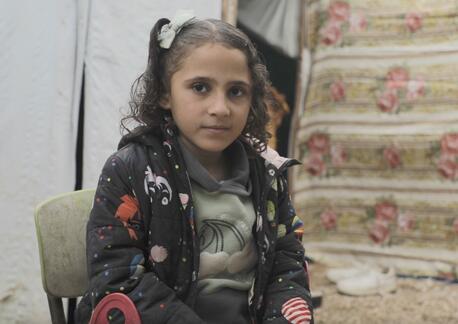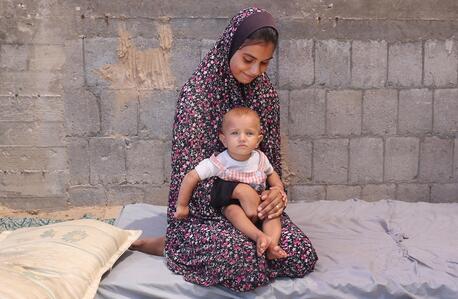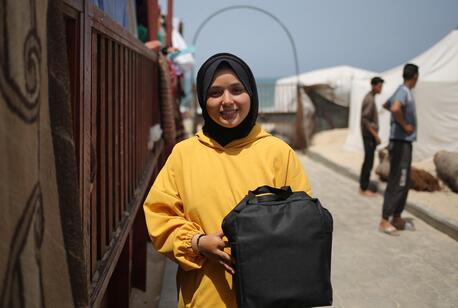
UNICEF Peacebuilding: Protecting Children in Conflict Zones
In war, children suffer first, and they suffer most. UNICEF is dedicated to building and sustaining peace.
How UNICEF is working to build and sustain peace in areas of conflict and potential conflict worldwide
As the number of armed conflicts across the world continues to rise, children are left to pay the highest price.
By 2024 there were an estimated 460 million children — more than one in six — living in conflict-affected settings worldwide, more than twice as many as just a decade before.
More than 80 percent of all humanitarian needs are driven by conflict. Children caught in conflict are more than twice as likely to be undernourished and without safe water. They are more than three times as likely to be out of school. The youngest children are more than twice as likely to die before age 5.
As UNICEF works to create a more equitable world for every child, building and sustaining peace is vital to this mission. UNICEF's Strategic Plan for 2022-2025 elevates peacebuilding as a priority across and within different program areas and goals. UNICEF’s Core Commitments for Children also includes benchmarks on conflict sensitivity and sustaining peace.
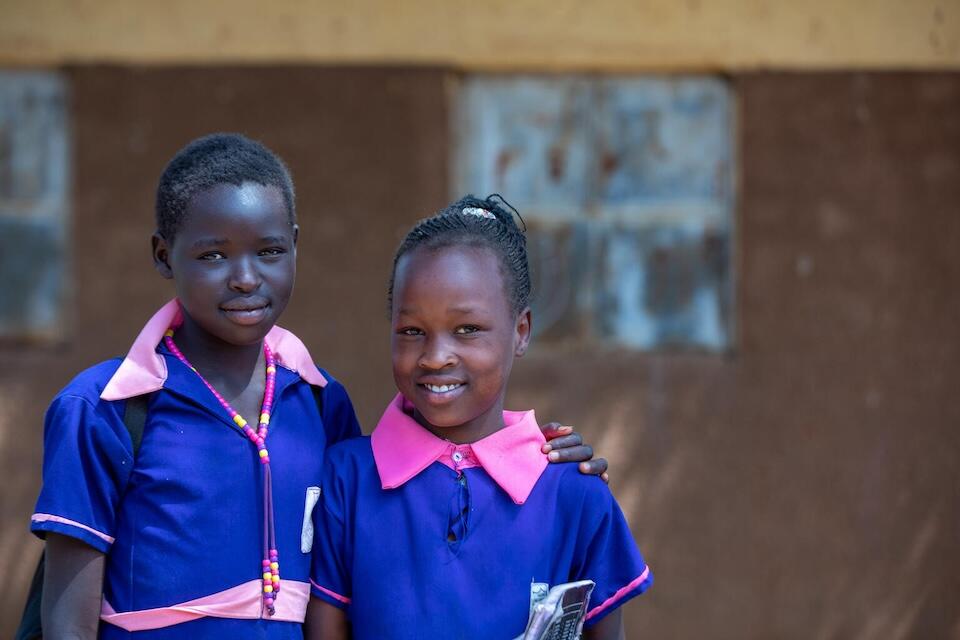
UNICEF’s unique position provides advantages for peacebuilding
The work UNICEF has been doing all across the globe since its inception in 1946 has created systems, partnerships and operations that provide tremendous advantages for integrating peacebuilding into the work already being done.
UNICEF has a large operational footprint, working in over 190 countries and territories to defend children’s rights by partnering with governments across national, regional, municipal and local levels. This work has created long-term partnerships with civic organizations, including many women- and youth-led organizations, as well as the private sector and international financial institutions.
UNICEF also has a long history of promoting social and behavioral changes — often in the face of entrenched societal norms that can be politically sensitive — in pursuit of children’s rights, gender equality, equity and inclusion.
All this work and experience enables UNICEF to contribute to multiple sectors while maintaining a long-term view of programming, even in the early phases of response.
“There’s a lot of evidence about what drives conflict, what it takes to build and sustain peace, what external actors can and cannot do," says Vanessa Wyeth, UNICEF Global Lead: Conflict Prevention, Fragility and Peacebuilding. "One of the key pieces of evidence is that violent conflict is driven in many cases by structural forms of exclusion, marginalization and discrimination that are very long term and deeply rooted in societies, and lead to extremely unequal distributions of power and wealth. The process of changing those is a long-term process of social transformation that has to be driven from the ground up, but international actors do have a role to play.”
Safety, equity and social cohesion: UNICEF’s approach to peacebuilding
UNICEF’s peacebuilding approach — in play on the ground and at policy tables and in areas affected by conflict and potential conflict — puts children at the center, prioritizing:
1. Safety for every child — especially the most excluded — ensuring they can go about their lives and invest in their futures without fear of violence
2. Equitable and inclusive access to opportunities and services — so that every child can live a healthy, fulfilled, engaged and productive life
3. Social cohesion — where every child can live and contribute to society, and where trust, inclusion, protection and participation define the relationships between and among state and societal groups
Through its programming, working with and within communities, UNICEF creates opportunities for dialogue and collaboration that helps reduce prejudice and ease social tensions. Children and community members who participate in UNICEF peacebuilding initiatives learn about conflict prevention and resolution. And by supporting more accountable and responsive governance, planning and oversight of social services, UNICEF helps build trust.
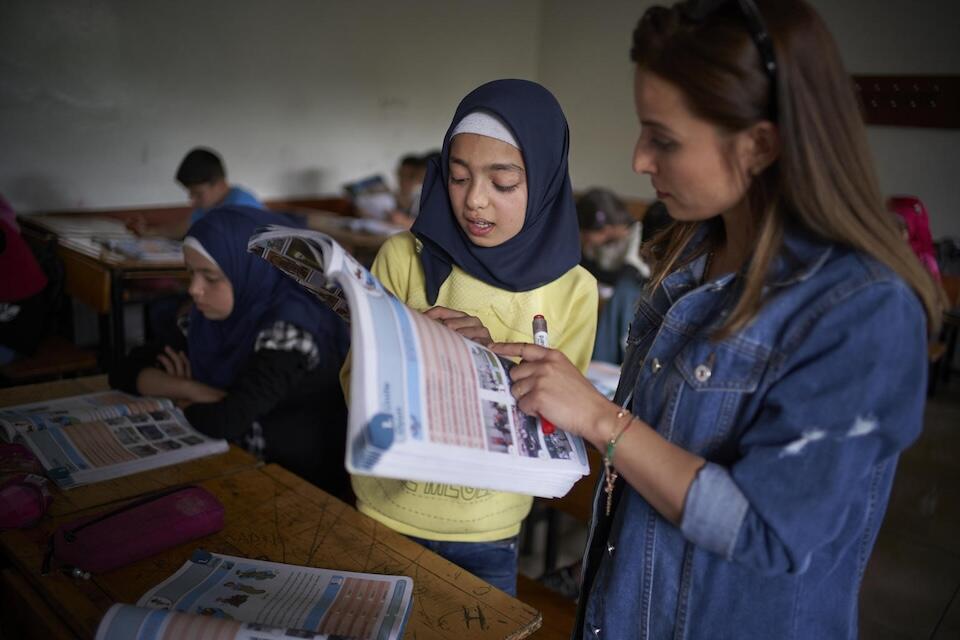
Where humanitarian action for children and peacebuilding intersect
For UNICEF, peacebuilding is not a standalone effort, but a lens through which all program priorities and goals can and should be viewed and adjusted as needed — doing no harm, while doing more good.
Often peacebuilding is a function of direct humanitarian assistance, and by making sure services are available to both refugee children and children from their host communities.
For example, UNICEF advocated to make school-age Syrian refugee children residing in Türkiye eligible for the country's conditional cash transfers for education program, a way to help get out-of-school children back to learning while also easing social tensions.
In the northern villages of Côte D’Ivoire, host to tens of thousands of refugees from Burkina Faso, UNICEF has trained a number of youth ambassadors in reconciliation and communication while working to reinforce access to social services for all.
In the Democratic Republic of the Congo, UNICEF-supported programs are working to ease social tensions and build trust between and within communities in the eastern province of Tanganyika. Organizing sports and cultural events, even assisting in the development of community action plans, have all helped serve peacebuilding goals in the country.
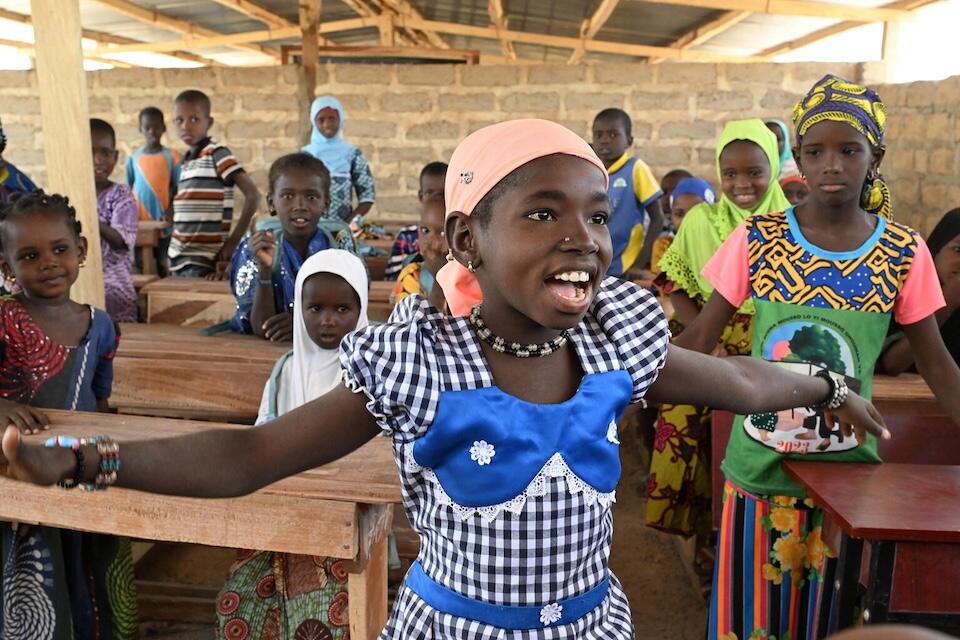
In Sahr, Chad, young people gather weekly in Democracy Village for debates, educational talks, socializing and games centered around different themes, or neighborhoods. The Super Banat group includes 140 young girls from five different regions who received training from UNICEF in HIV, gender-based violence and reproductive health, and now consider themselves agents of change. The concept is part of a program implemented by UNICEF with funding from the Peacebuilding Fund that promotes democracy and civic participation among young people.
And as part of the WASH for Peace program, UNICEF created guides and toolkits for integrating conflict sensitivity and peacebuilding into efforts to address water scarcity in fragile and conflict-affected areas such as Myanmar’s Kayin State.
Your unrestricted tax-deductible donation can help increase UNICEF's impact for children. Donate today.


